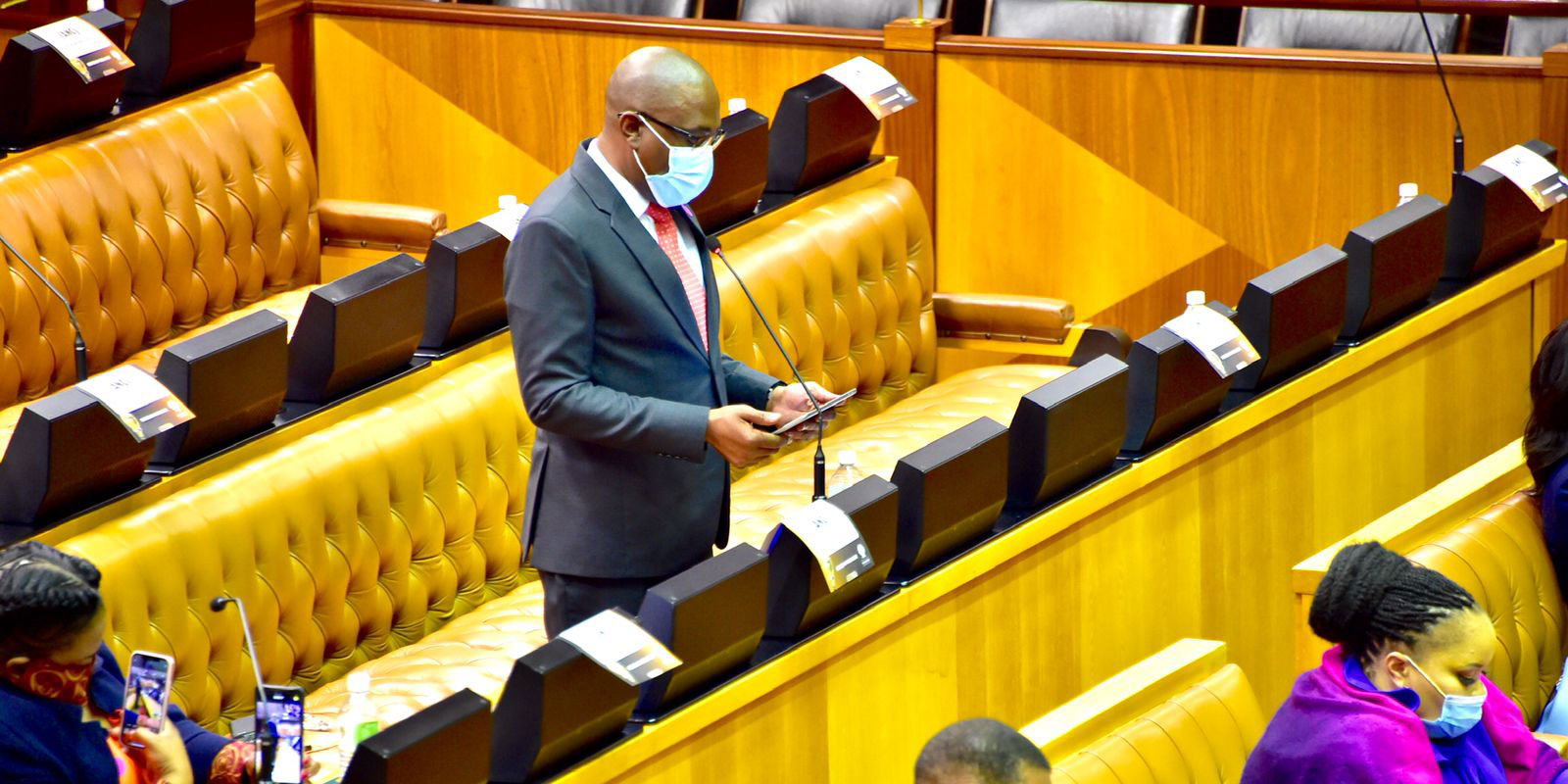The COVID-19 outbreak across the Southern African Development Community (SADC) region represents a significant threat to public health and to human and social development in general. The pandemic started as a health crisis in early 2020 but quickly expanded into a financial and economic crisis which culminated in far-reaching ramifications for the socio-economic life, livelihoods and safety of SADC’s citizens.
In #SADC, Parliaments are at the forefront of the #COVID19 response and can play a leading role in putting in place the legal and budgetary frameworks necessary to mitigate the spread and negative effects of the pandemic @sadcpf
Tweet
In SADC, Parliaments are at the forefront of the #COVID19 response and can play a leading role in putting in place the legal and budgetary frameworks necessary to mitigate the spread and negative effects of the pandemic. Parliaments can also lay the legal framework for better and more inclusive vaccination campaigns. In this respect, the The SADC Parliamentary Forum (SADC-PF) has embarked on an adaptive strategy to encourage SADC national Parliaments and Governments to share experiences with one another, and conduct peer learning on policy responses, as they address the COVID-19 situation prevailing in their respective countries.
Coordination is additionally necessary given the need to exercise constant surveillance on the variances of COVID-19 and ensure that vaccines remain responsive to the prevailing variances in society. Ensuring resilience in the SADC region will thus also mean working together at the inter-state level under the umbrella of the relevant SADC organs.
Within the scope of its adaptive strategy, the SADC-PF has further recommended that the responses by each national Parliament should be evidence-based, proportionate to the urgency of the situation, and in conformity with human rights applicable. At all times, a careful balancing exercise should be conducted of the urgency of the COVID-19 situation at the domestic level and the need to protect fundamental human rights of individuals who may be quarantined, confined or under curfew, depending on the domestic circumstances. The same balancing exercise and degree of caution will also need to be exercised with regard to parliamentary decisions on vaccine application or the wearing of Personal Protective Equipment, namely in which circumstances these should be made compulsory, if at all.
In #SADC, parliaments should review intellectual property frameworks so that essential medicines, drugs and vaccines to combat #COVID19 are available to the public free of charge or with subsidies from the State @sadcpf
Tweet
SADC Parliamentarians need to rise to these challenges and embrace their role in this time of crisis management so that they can ensure that the SADC region, Africa, and by extension the world, recover quickly from the pandemic.
The SADC-PF recommends the following principles for the consideration of national Parliaments as they address the COVID-19 situation:
- The objective to attain Universal Health Coverage (UHC) and fulfil Sustainable Development Goal 3 relating to health and wellbeing for all, should remain the overarching guiding principles to inform policy and legislative responses across SADC;
- Whilst priority should be given to mobilise resources to address the COVID-19 outbreak, access to other equally essential health care services should not be mitigated, for instance, Sexual and Reproductive Health services, essential surgical interventions, treatments for chronic illnesses, screenings for cervical cancer, provision of ARVs for treatment of HIV/AIDS etc. Redeployment of medical staff to fight the COVID-19 pandemic should also ensure that there are no lapses in delivery of other essential health care services;
- The theme of COVID-19 should be integrated into Standing Committee agendas at national and regional levels, in order to consider COVID-19 from a holistic perspective;
- A national monitoring surveillance team should be set up which includes parliamentarians to monitor the daily COVID-19 situation and the inclusiveness of vaccination campaigns;
- Legislation needs to be adopted that prevents the sale of vaccines on the black market as this can distort the supply flow and prices of vaccines;
- The consequences of the COVID-19 pandemic on the treatment of other illnesses should be assessed scientifically in view of preventing a collapse of public health systems;
- In consultation with central banks, banking charges and levies should be removed to promote cashless banking systems which avoid handling of cash by the public;
- Parliaments may consider adopting targeted legislation for the creation of special funds to assist most vulnerable communities and key populations, and to establish confinement conditions which are human rights-friendly and proportionate to the urgency of the situation;
- Favourable trade agreements should be negotiated with partner countries to ensure that there is continuity in the availability of staple food supplies and commodities, as well as for vaccine procurement;
- Intellectual property frameworks should be reviewed such that essential medicines, drugs and vaccines to combat COVID-19 are available to the public free of charge or with subsidies from the State;
- A special COVID-19 tax regime may be instilled for a determined period to encourage enterprises and individuals to address the economic crisis, for instance by removing Value-Added Tax (VAT) on certain products, giving rebates, reducing income tax for certain economic sectors in difficulty etc;
- Policy frameworks should be re-engineered through the budget to reinforce the public health system and ensure that it can be sustained in the long term to address the pandemic;
- The long-term financial, industrial, social and environmental impact of the pandemic should be assessed for each country and cooperation established between SADC countries in view of supporting one another and opening new food and medical supply lines where necessary.
The SADC-PF is confident that its Member Parliaments will continue promoting the values and guiding principles of the Forum in shaping their dynamic COVID-19 responses, including respect for human rights, the rule of law and constitutionalism. In addition, the Forum will continue to assist Member Parliaments in supporting COVID-19 responses at State level in view of ensuring conflict avoidance and resilience.
Ms Boemo Mmandu Sekgoma, is the Secretary General of the SADC Parliamentary Forum.


